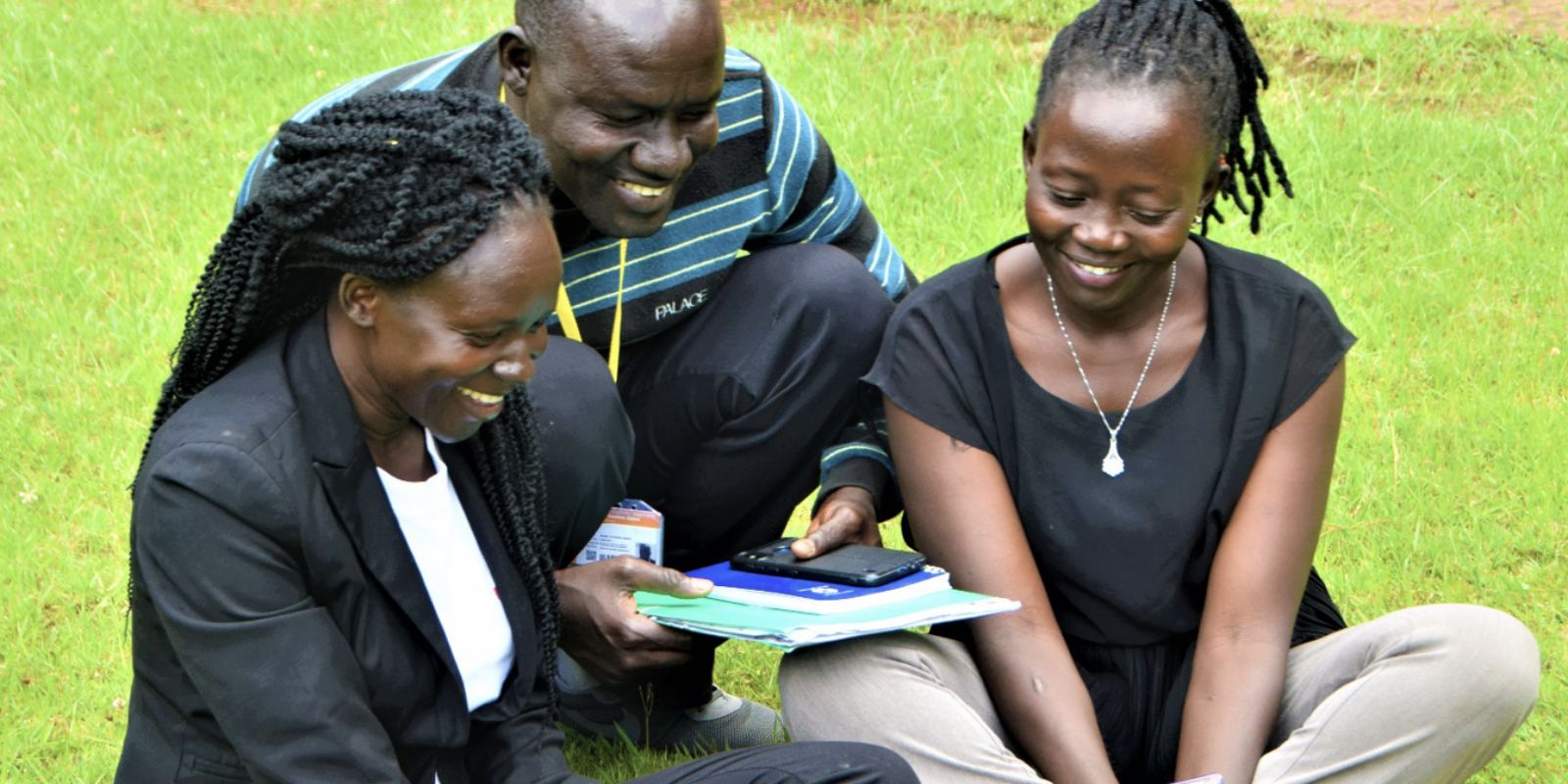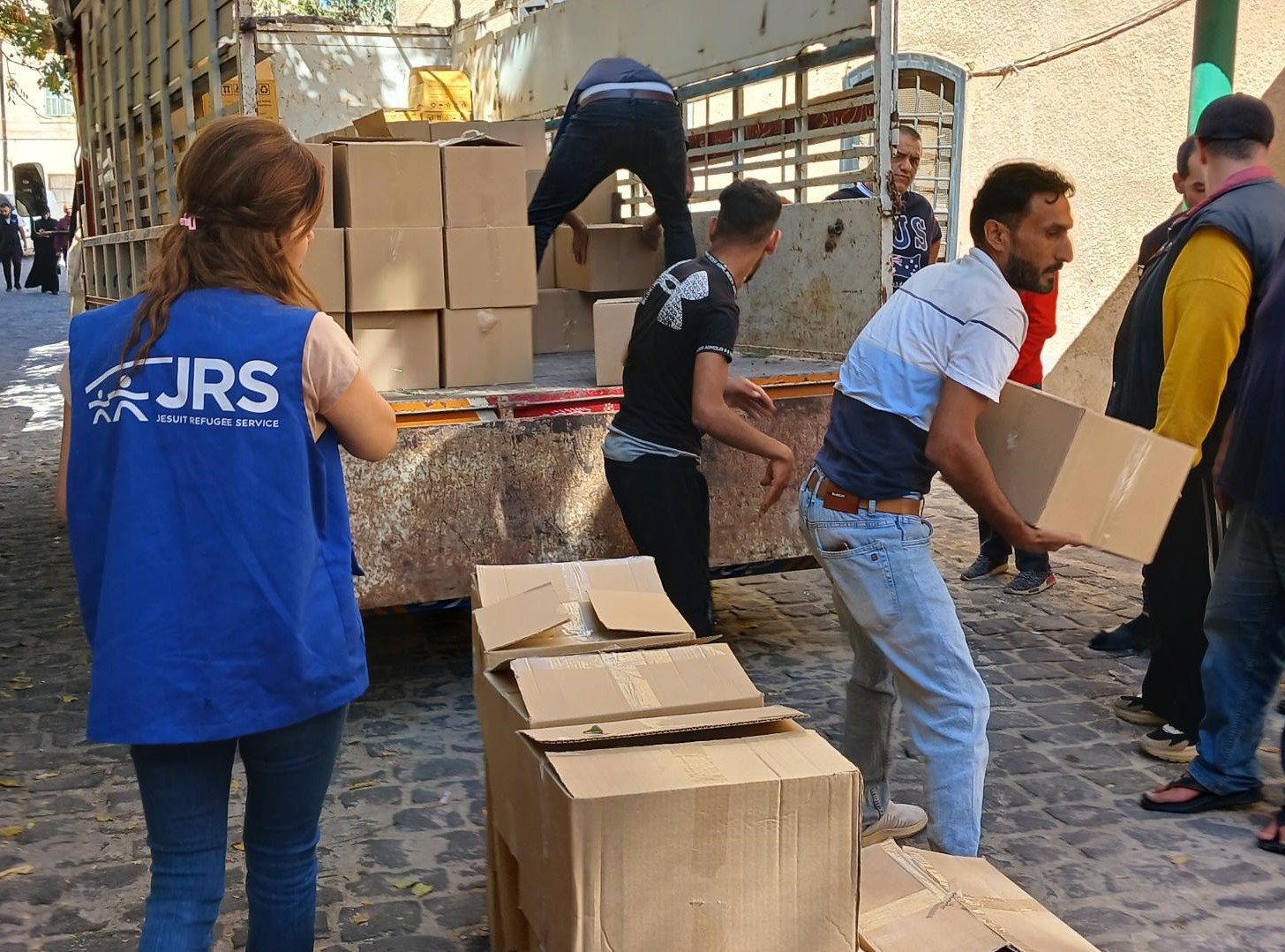JRS INSIDER: Hamida’s fight to educate women and girls in Afghanistan
11 October 2024|Chloe Gunther

Hamida, the middle child of six, grew up inspired by her older sisters. In their small town of Herat, Afghanistan, education was a priority in her family. So, when JRS Afghanistan offered her sisters a chance to participate in an education program, Hamida was determined to join them.
“I was so mad that I wasn’t old enough,” Hamida laughed. “I would tag along with my sisters anyway. Luckily, my parents are open-minded and really value education.”
Noticing Hamida’s eagerness and skill, the JRS instructors made an exception and allowed her to join the classes, even though she was younger than the required age.
For three years, Hamida attended JRS Afghanistan’s classes. “Not only did I learn how to speak English,” she said, “but I learned how to speak up for myself and other girls.”
Hamida became a leader in her community, encouraging her friends to embrace the chance to attend school. It bothered her that many girls her age didn’t have the same opportunities.
The town was initially hesitant toward international organizations and their perceived agendas. Hamida took it upon herself to explain the positive impact of JRS. She visited friends, family, and community members, sharing how the education services had transformed her life.
“I went to my friends’ parents and explained how JRS respects family values, this community, and our religion,” Hamida said. “I wanted them to see that JRS was about growth and learning.”
She even invited her neighbors to speak with her parents to hear firsthand why they supported their daughters attending JRS classes.
Driven by her passion for education, Hamida enrolled in JRS’s teacher training program after graduating from the education courses. Soon, she began teaching English herself.
Starting as a teenage teacher, Hamida was nervous—especially since some of her students were older than she was. But she quickly adapted her teaching style to meet each student’s needs.
“I love the relationships I built,” Hamida reflected. “My favorite part of teaching was interacting with so many people, each with a different personality.”
However, in August 2021, Hamida’s teaching came to an abrupt halt when the US withdrew from Afghanistan, and the Taliban regained control. Hamida recalls the chaos and danger of that month.
“When we heard the Taliban was advancing, my dad drove me and two of my sisters from Herat to Kabul,” she said. Because they had been active in teaching girls about their rights, Hamida and her sisters’ lives were in danger.
They waited in Kabul for two weeks, hoping for visas. Hamida had been awarded a fellowship in India, but the American embassy was the only embassy available by the time they arrived. After explaining the threats they faced, Hamida and her sisters were granted visas.
At 5 a.m., their father took them to the airport, where they faced a chaotic scene. “The airport was a mess,” Hamida said. “There was shooting all around, and everyone was scared.”
Fearing for his life due to a heart condition, they insisted their father leave and let the girls go forward on their own. Amid the chaos, a tear gas canister exploded, separating the sisters. Hamida had to abandon her phone and belongings to survive. Miraculously, they reunited two days later inside the airport, though one of her sisters was severely injured by a grenade.
After receiving treatment in the airport’s makeshift hospital at the airport, the sisters boarded flights to Qatar, then Germany, and finally to Washington, D.C.
Today, Hamida and her sisters are thriving at universities in the US. “JRS is the reason I am here, that I speak English, and that my sisters and I are able to succeed in school.”
Hamida’s family has since fled Afghanistan as well and are safe in another country, awaiting asylum approval to reunite with her in the US.
Looking to the future, Hamida remains committed to education. She dreams of one day returning to Herat to continue her mission of helping others learn.


